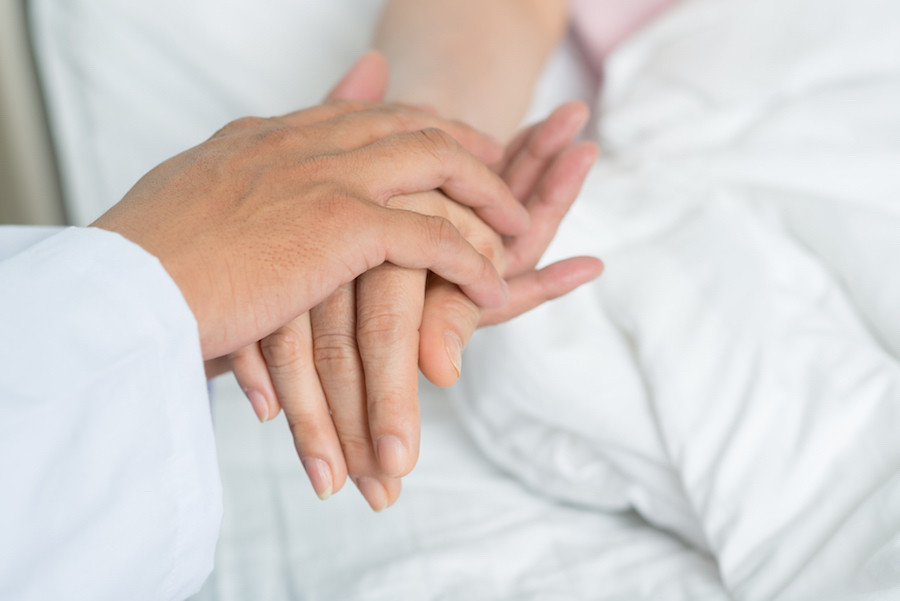UNIVERSITY PARK, Pa. — A new Penn State project will use telemedicine technology to enhance access to sexual assault forensic exams in underserved populations.
Backed by a $1.1 million U.S. Department of Justice, Office of Victims of Crime grant, Sheridan Miyamoto, assistant professor of nursing, along with Janice Penrod, professor of nursing, and Lorah Dorn, professor of nursing and pediatrics, are planning to launch the 15-month project in December.
Called the Sexual Assault Forensic Examination and Training (SAFE-T) Center, the project will focus on improving access to quality forensic sexual assault care for adult and adolescent victims in underserved communities. The Department of Justice cited results of an eight-year study completed by Miyamoto and colleagues at the University of California-Davis as a basis for funding a demonstration in an adult and adolescent population.
Through telemedicine, or the use of high-resolution image display, live-examination video conferencing, Miyamoto hopes to improve the quality of services afforded to victims of assault in rural hospitals across Pennsylvania, where sexual assault rates are higher than in urban settings. She calls the instant two-way communication a “rewarding partnership.”
“This program is not intended to have an expert on one side and eyes and hands on the other,” Miyamoto explained. “Instead, experienced nurse examiners have the opportunity to mentor those that are less experienced in a partnership designed to result in higher quality patient care and a more forensically defensible exam. The consultant nurse team will offer 24/7 live exam guidance and mentoring to the nurses, who are meanwhile enhancing and developing their skills so they can become the local experts.”
The system provides support on an emotional level, too. Miyamoto said the nurses are often handling too many roles simultaneously and performing emotionally burdensome work in isolation, without colleagues. The creation of a network of colleagues who come together using telemedicine technology to share cases and challenges each month goes a long way to reducing that isolation. Miyamoto herself worked at a rural community health clinic as a nurse practitioner after graduate school. She found the lack of specialty resources stark, and she is eager to change that.
The SAFE-T Center aims to take a step further outside the hospital doors by engaging Community and Expert Advisory Boards, made up of a multidisciplinary group of community leaders and researchers, to engage in planning for the success and future growth of a state-wide network to support this field. Miyamoto has already enlisted the contributions of Penn State partners Jennifer McCall-Hosenfeld and Chris Sciamanna, physicians at Milton S. Hershey Medical Center; Daniel Perkins, director of the Clearinghouse for Military Family Readiness; Dennis Scanlon, director of the Center for Health Care and Policy Research; Gary Zajac, director of the Justice Center for Research; and Casey McClain, assistant public defender and faculty member.
Miyamoto stresses the importance of role diversity within the coalition.
“Sexual assault is a multi-faceted issue,” she said. “We need law enforcement, district attorneys, health care, children and youth services and advocates all at the table. We need to ask how we can together build a solution, how we can regionalize service and meet the needs of victims of assault. Together, we can produce the change we wish to see.”
The overall goal of the SAFE-T program is two-fold, according to Miyamoto, first to improve quality of examinations, and second to establish sustainability of efforts. She considers Penn State the ideal university for such an undertaking.
“The Penn State campuses are conveniently distributed across the state and there is a strong nursing presence both in educational programs and in the Community Based Research Network. I believe this could really grow into a much-needed solution in our largely rural state. Then, if research determines that this model improves access and quality of care and quality of forensic evidence, we will know it is the right thing to do, and ideally, a sustainability plan will follow. That is my great hope,” Miyamoto said.
Additional funding for this project is being provided by Penn State’s Child Maltreatment Solutions Network and the Clinical and Translational Science Institute.



